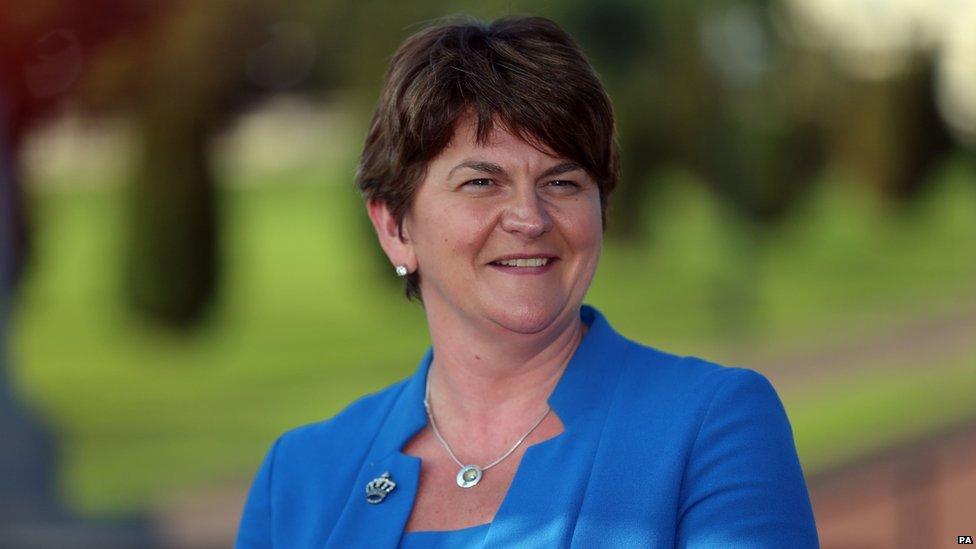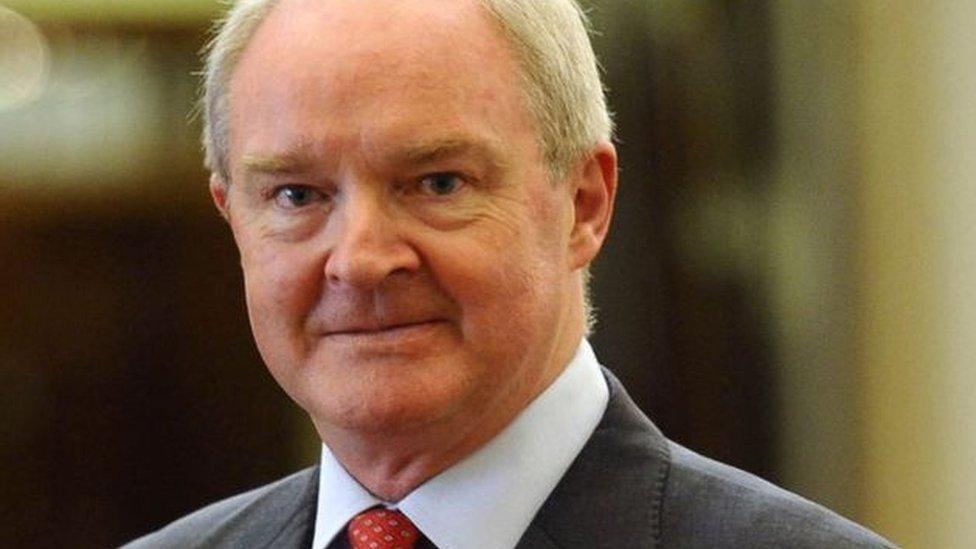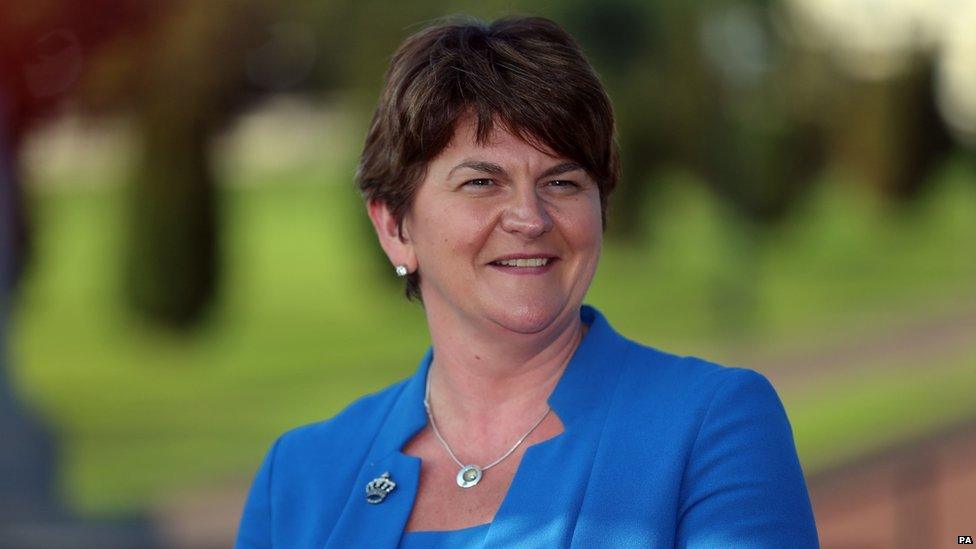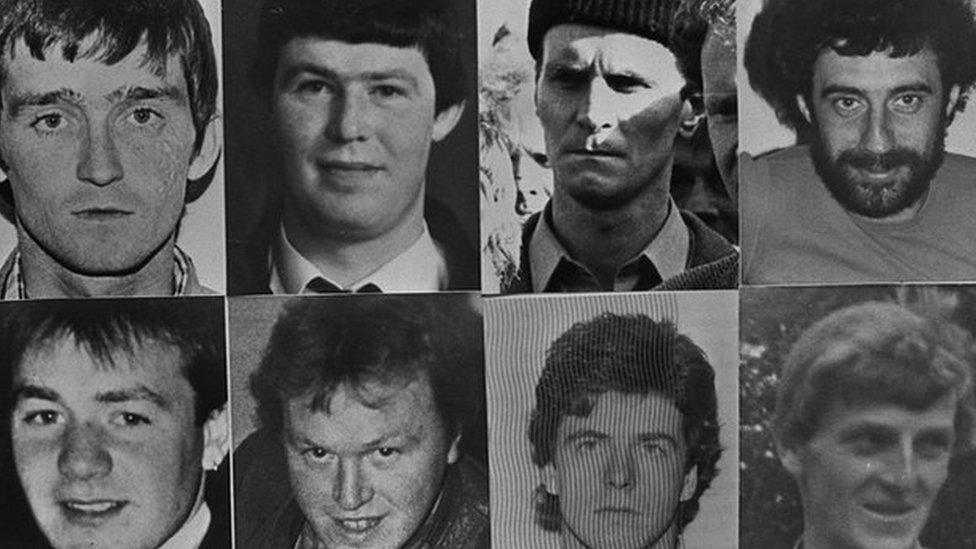Foster 'should not be liable for legal costs'
- Published

Arlene Foster was first minister at the time the decision to block the funding was taken
A lawyer for Arlene Foster has said she should not have to pay the costs of a successful legal action against her.
Last week a judge ruled that the former first minister's decision to block funding for a legacy inquests plan was unlawful and flawed.
The Attorney General said that as she was no longer first minister she had no ministerial responsibility.
John Larkin QC added that she should not be liable for any damages awarded to the person who took the case.
He said this was because an allegation of discrimination had been rejected by the court.
However a lawyer for the woman who took the case argued that the leader of the DUP should have to pay costs because she was the "main culprit".
Brigid Hughes challenged the failure by Stormont's executive office, the justice department and the secretary of state to put in place adequate funding to prevent further delays in holding legacy inquests.
Her husband, Anthony, was a civilian shot dead along with eight members of the IRA in May 1987 by the SAS as republicans attacked Loughgall police station in County Armagh.
Judge Sir Paul Girvan last week ruled in her favour.
He said Mrs Foster was wrong to think the decision on funding a proposal from the Lord Chief Justice for dealing with legacy inquests could be postponed until after a wider political agreement on dealing with the past.
At a hearing to determine costs and other issues on Friday, lawyers for the executive office, the justice department and the secretary of state also argued that they should not have to foot the bill.
At one point the judge said: "The long and the short of is that the various parties failed to progress this issue."
'Main culprit in all this'
Barry Macdonald QC, representing Mrs Hughes, rejected the arguments and said his client had won her case and was therefore entitled to have her legal bill paid.
He said those paying should include the leader of the DUP.
"The former first minister was really the main culprit in all this," he told the court.
"She blocked consideration of the proposal, she promoted the notion that it was permissible and lawful to withhold funding for legacy inquests pending a resolution of overall legacy issues.
"Costs are appropriate against her."
Last week the judge also ruled that the secretary of state and relevant Stormont departments must now reconsider the issue of funding for Lord Chief Justice Sir Declan Morgan's plan to deal with all legacy inquests within five years.
Lawyers for the secretary of state, the justice department and the executive office argued he should not issue a court order compelling their clients to reconsider.

Lord Chief Justice Sir Declan Morgan called for extra funding for inquests
They said there was no need to do so as they were public authorities and would therefore comply with his judgement.
But Mr Macdonald insisted there was a need for an order because the response of those named in the legal action demonstrated that they had "failed to recognise their responsibilities".
"An element of compulsion is necessary because any party failing to act would be in contempt of court," he said.
'Lack of transparency'
The judge also referenced comments by the head of Northern Ireland's civil service, David Sterling, who earlier this week revealed there was a policy of not taking minutes at some meetings.
Speaking at the inquiry into the Renewable Heat Incentive (RHI) scheme he said this was so the details would not be available under Freedom of Information, and to avoid potential embarrassment to DUP and Sinn Féin ministers.
Discussing Barry Macdonald QC's submission that there should be an order compelling compliance with the judgement issued last week, Sir Paul Girvan said: "Unless you have a more intrusive order you will end up with a perpetuation of nothing happening - in a context where there's a lack of transparency of how decisions are reached because it might embarrass somebody."
The judge will deliver his ruling on costs and the next steps to be taken by the relevant authorities later this month.
- Published8 March 2018

- Published5 February 2016
